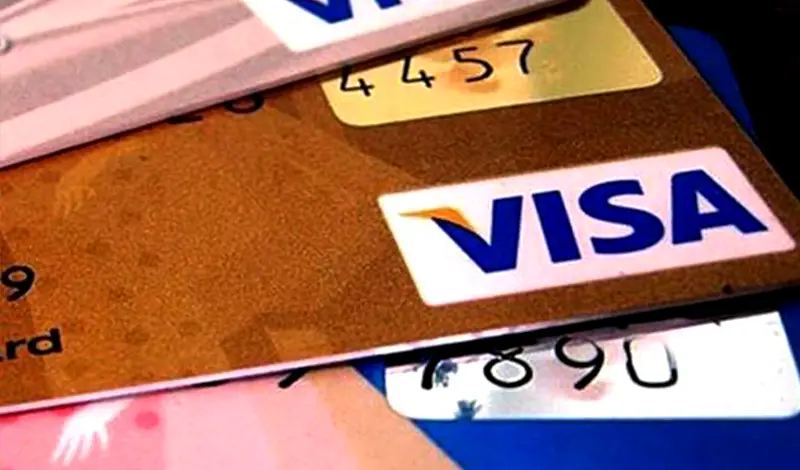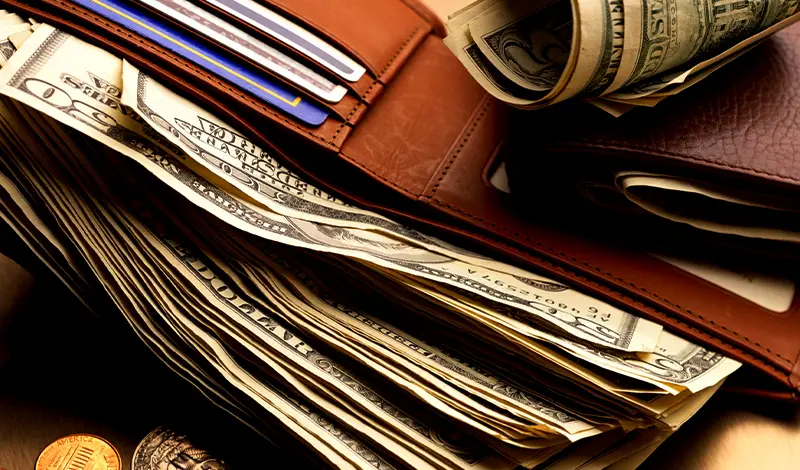How to carry money while travelling abroad! Many travelers worry about how to carry their money while abroad. There are many options, but some of the simplest and easiest ways to do it can be found in your wallet or purse.
This blog will explore some of the most common questions asked on this subject and give helpful tips for carrying cash overseas that you may not have known before.
If you’re traveling to a foreign country, it’s important to know how to carry your money safely and securely.
First, decide if you want to carry cash or use a credit or debit card. If you choose to carry cash, be sure to have small bills, as they can be easier to exchange than larger bills.

You’ll also want to make sure that your money is hidden away and not visible to others. One way to do this is by using a money belt or pouch. Another option is to put your money in a safe place inside your luggage.
Whatever method you choose, be sure to practice safekeeping your money while abroad.
How To Carry Money While Travelling Abroad
We all know the feeling of going to a foreign country and not knowing how much money we need or what currency is used. This can be very stressful, especially if you are traveling with a large sum of cash on hand.
DAITET Money Belt – Passport Holder Secure Hidden Travel Wallet with RFID Blocking

It’s important to be aware of local laws and customs surrounding cash transactions, as well as your travel itinerary. If you have a credit card, debit card or ATM card, these can be used for exchanging money at banks or from street vendors.
You’ll also want to know how much it will cost you to withdraw money from an ATM. Some countries also offer cash exchanges at their airport. However, if you choose to do this, be sure to keep a close eye on your money and count it before leaving the terminal.
You can carry money while traveling abroad by following the steps below
1. Use A Money Belt Or Neck Pouch
These are ideal for carrying cash and other valuables while you travel, as they are hidden from view. You can wear a money belt under your shirt or attach it to the inside of your pants’ waistband.
Neck pouches are worn around your neck and can be used for carrying cash, credit cards, passports and other important documents.
2. Use A Safe Place In Your Luggage
If you’re not comfortable carrying cash on your person, you can put it in a safe place inside your luggage.
This can be as simple as placing it in a zipper-lock bag and storing it in a hidden compartment in your suitcase or backpack.
3. Use A Credit Or Debit Card
If you choose to use a credit or debit card, be sure to notify your bank and credit card companies before you leave.

This will ensure that your cards won’t be blocked while you’re travelling.
4. Use A Prepaid Currency Card Or An ATM Card
These can be useful for withdrawing cash from ATMs in foreign countries, but make sure you do some research beforehand, as different cards have different fees associated with them.
5. Exchange Money At The Airport
If you’re arriving in a foreign country and need to exchange money, you can do so at the airport. However, be sure to count your money carefully before leaving the exchange kiosk.
It’s also a good idea to have some local currency on hand for emergencies.
Pacsafe Rfidsafe V50 Anti-theft Blocking Compact Travel Wallet, Black

6. Travelers Cheques
Travelers Cheques can be useful when carrying money while travelling abroad, but they also present some risks. If you lose your cheques or if they are stolen, it can be difficult to replace them in another country.
7. Money Apps
There are a number of free or low-cost money apps available for mobile devices. These can be an easy way to manage your money while travelling, as they can be used to track expenses, make payments and store funds.
8. Multicurrency Travel Card
A Multicurrency Travel Card can be a useful alternative to carrying cash or using a regular credit card. It allows you to load several currencies on one card, making it easier for you to exchange money without having to carry around large sums of cash.
9. Third Party Transfers
If you’re travelling with a group, you can use a third-party money transfer service to exchange money between members of the group. This can be a convenient way to avoid carrying large amounts of cash around.
10. Use Money Alternatives
If you wish to use cash at all, you can use money alternatives such as traveller’s cheques or prepaid currency cards. Travellers Cheques are a preprinted form of IOU that can be exchanged for goods and services anywhere in the world as long as they’re payable in US dollars.
Another option would be to use an ATM or prepaid currency card. This can be a good way to avoid carrying large amounts of cash, but make sure you do your research before selecting a card, as some have higher fees than others.
Be Careful When Traveling Abroad With Money
1. Find Out About The Currency In Your Destination Before You Go
You must know which type of currency is used in your destination country. You might want to research exchange rates as well so that you don’t end up losing too much money when exchanging it into local currency once there.
Mind and Body Experts The Belt of Orion Survival Gear Travel Running Belt Black Fanny Pack

2. Get Familiar With ATM Fees
If possible try withdrawing only enough cash needed for each day at an ATM right away rather than withdrawing larger amounts of money at once.
You’ll also want to find out how much the ATM fees are so you won’t lose too much in fees while withdrawing cash.
3. Keep Your Cash Money Safe
Try not to flash around large sums of money, especially when withdrawing it from an ATM or exchanging it into local currency.

It’s best to keep your cash hidden in a safe place, such as a zippered compartment in your luggage.
4. Use Caution When Using Credit Cards
When using your credit card abroad, be aware of the foreign transaction fees that will be charged. These can add up quickly, so it’s best to avoid using your credit card whenever possible.
You might also want to notify your credit card company of your upcoming travel so that they don’t put a hold on your account.
5. Beware Of Pickpockets
Pickpockets are a common problem in many tourist destinations, so be aware of your surroundings and take precautions to keep your money and belongings safe.
Try not to carry large sums of money with you and use a money belt or zippered pockets to keep your cash hidden.
6. Decline The Offer To Exchange Currency In An Open Market
Some street vendors in foreign countries may offer to exchange your money for a better rate than what you would get at a bank or exchange kiosk.
However, these exchanges are often scams, so it’s best to avoid them. If you do need to exchange money, go to a reputable source such as a bank or an authorized currency exchanger.
8. Know The Exchange Rate
It’s important to know how much your money is worth in the local currency before you go. You can do this by checking exchange rates online or in the newspaper.
This will help you to avoid being taken advantage of when exchanging money once you’re abroad.
You can read it: How To Pack Honey For Travel: Best 12 Steps
Travelon Origin-Anti-Theft-Slim Bag-Silvadur Treated

What can happen if you lose all of your cash or credit cards when travelling abroad?
If you lose all of your credit cards and cash, it might be difficult to get the financial help you need. If this happens to you, here are exposed wallet tricks that can help you out:
1. Find A Safe Place
It’s best to find temporary accommodation in a hotel or hostel that will provide internet access for you to contact your bank and credit card companies.
2. Alert Your Banks
Contact your banks as soon as possible to report your cards as lost or stolen. This will help to protect you from any fraudulent charges that may occur.
3. Get Emergency Funds From Family Or Friends
If you don’t have access to any money, you might want to contact your family or friends who might be able to help you financially.
Another option is to check whether your credit card company can provide emergency cash advance services.
4. Call The Embassy
You should call the authorities at your destination country’s embassy to report what has happened and ask for advice on how they can assist you.
The embassy staff might be able to help you get in touch with local organizations that can offer assistance.
5. Use A Travel Money Card
If you have a travel money card, this could be a helpful option to have in a situation like this. You can usually use these cards to withdraw cash from ATMs or make purchases at stores.
Just make sure you have the card’s contact information with you in case you need to access it while travelling.
You can like it: Top Five Most Beautiful Places In The World
What Is Money Belt?
A money belt is an effective way to carry important items that you might need when travelling, such as your passport and credit cards, without having to worry too much about their safety.
Money belts are usually worn underneath your clothes around your waist or lower back where they are hidden from view.
Can I Carry Money Through Airport?
Travellers are allowed to carry a certain amount of money in foreign currency without having to declare it at the airport. This is known as the “duty-free limit”. For most countries, the duty-free limit is around $10,000. However, it’s important to check with your local authorities to find out the exact limit that applies in your case.
If you do not follow the duty-free limit and declare all of your money, it could be confiscated. This is usually the case if you have $10,000 or more on you when entering or exiting a country.
How can I hide money in my luggage?
There are many ways you can hide money in your luggage, including using false pockets, attaching the cash to your body and even sewing it into the lining of your bag.
It’s important to remember that you should never carry large sums of money on your person when travelling abroad or at home. If you do need to take a lot of cash with you, make sure you do it safely by following the tips provided above.
Can The Airport Scanner See Money?
The airport scanner can see money and metal objects. If you have any of these items on you, you will need to remove them before going through the machine. If you need help, staff members at the airport should be able to assist you.
You can also read it: Essentials For Living In The Mountains: 16 Thing You Must Need
Conclusion
International travel can be a hassle, but there are ways to make it easier. One way is by carrying money in the right currency and avoiding cash or traveler’s checks that will need to be exchanged at the airport (which may incur fees).
When travelling abroad, it’s important to take precautions when carrying money. You may be tempted to carry your cash in a purse or wallet but that can lead you into trouble if the bag is stolen.
If you’re travelling abroad and have any questions about how to carry your money with you while on vacation, please leave us a comment below!
Enjoy your travel!